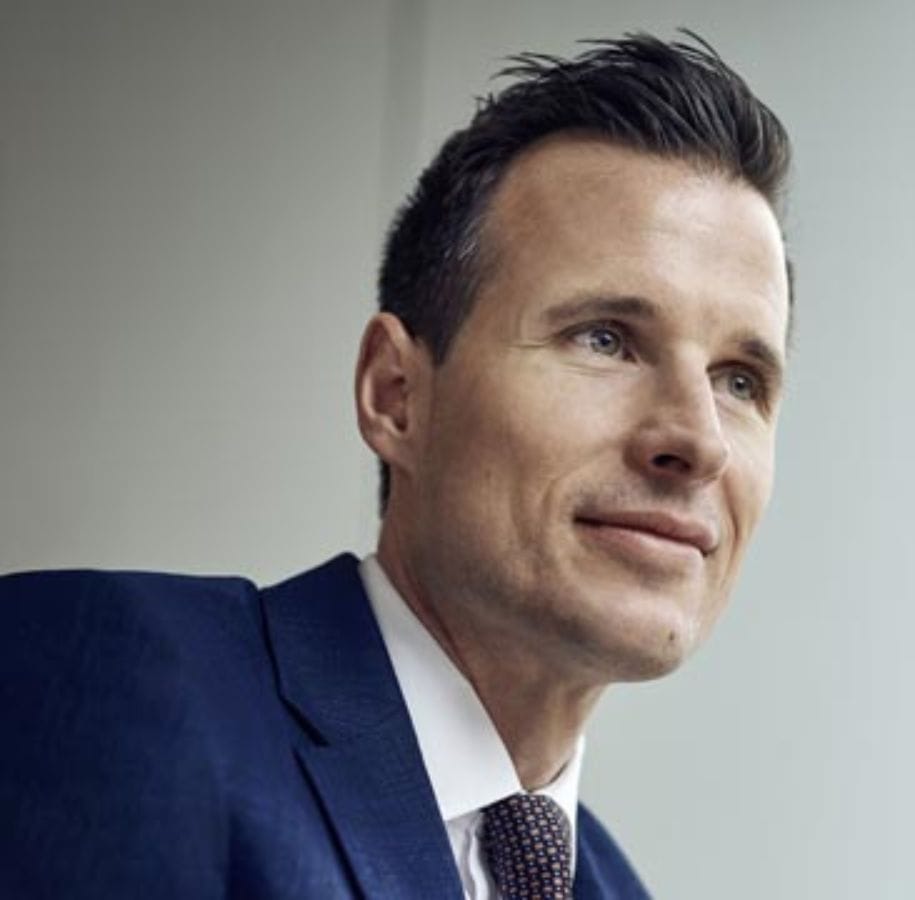 All stakeholders– internal and external – must buy into itCreating a visionManaging the delivery of results and expanding skill setsAdapting the IT organizationEstablishing a culture of change
All stakeholders– internal and external – must buy into itCreating a visionManaging the delivery of results and expanding skill setsAdapting the IT organizationEstablishing a culture of change
The digital revolution is turning the world of business upside down. The current crisis has underlined that digitalization is no longer a mere competitive advantage; it is essential. A range of factors must come together if investment in progress is to be a success. We spoke to Ulrich Bergmann, CFO of the international CHG-MERIDIAN Group, about one of the largest transformation projects in the company’s history, and about what determines the success or failure of digitalization measures.

Ulrich Bergmann, 46, joined the CHG-MERIDIAN Group as a Senior Executive Manager in 2019. He was appointed Chief Financial Officer (CFO) at the beginning of 2020. In this role, Bergmann is responsible for the Project Management Office (PMO) and the Accounting, Contract Management, Controlling, Internal Sales, Legal, Operational Excellence, Tax, and Treasury departments. The Executive Vice Presidents of Finance in the 27 countries also report to Bergmann.
You Probably Have The Coronavirus Pandemic In Mind When You Mention Working From Home. What Impact Do You Think It Is Having On Digitalization?
The coronavirus pandemic is having an enormous impact on our economy and our society. It has highlighted the fact that digitalization is no longer just a competitive advantage; it is a minimum requirement for long-term business success. Companies that invest in digital transformation today will be the winners tomorrow, as they will be in a better position to react to changes in the market and therefore be more competitive. The current situation makes that very clear.

How Important Is The Digital Transformation For A Medium-sized Enterprise Such As Chg-meridian?
We are a global technology management company, and as such we can clearly see the benefits of investing in digital progress. Our ambition is to actively shape the future rather than simply reacting to events. As the full Management Board, we have therefore made digitization a top priority on our agenda. Driving forward the digital transformation at CHG-MERIDIAN is one of our most important tasks with a view to the coming years in this regard. This includes increasing our profitability and creating an environment in which we can further scale up our business model.

Where Did The Company Start Out From And How Far Has It Come?
CHG-MERIDIAN came up with initial ideas for, and approaches to, digitalization some years ago. In mid-2019, we used these to develop a company-wide vision that was set in motion in early 2020 with the Global Digital Transformation Program (GDTP). We have now rolled out the first international projects less than a year after the initial launch, including a system for electronic signatures and software for digitally archiving documents. Both systems simplify and speed up the processing of international contracts. Further strategic projects will be ready to roll out shortly or are in development, for example our technology and service management system TESMA®.
Five Factors For A Successful Digital Transformation
 All stakeholders– internal and external – must buy into itCreating a visionManaging the delivery of results and expanding skill setsAdapting the IT organizationEstablishing a culture of change
All stakeholders– internal and external – must buy into itCreating a visionManaging the delivery of results and expanding skill setsAdapting the IT organizationEstablishing a culture of change
Talking Of Cultural Change, What Role Do Employees Play In Digitalization?
A transformation as comprehensive as this requires the approval and acceptance of all stakeholders, both internal and external. Redesigning processes and upgrading IT hardware is important, but it is of little value if employees cannot cope with the changes. Everyone needs to be on board. After all, innovation and agile working are not limited to the transformation team, but should be permanently embedded within the corporate culture. This can be achieved by being transparent about the reasons behind the transformation and, ideally, by actively involving everyone in the design of the projects. Our advantage at CHG-MERIDIAN is that we have always had a start-up culture rooted in the history of our company, and that our employees have a strong affinity with new technologies. Nevertheless, change is not something that happens of its own accord, which is why we are working on strategic change management with our Human Resources department.
